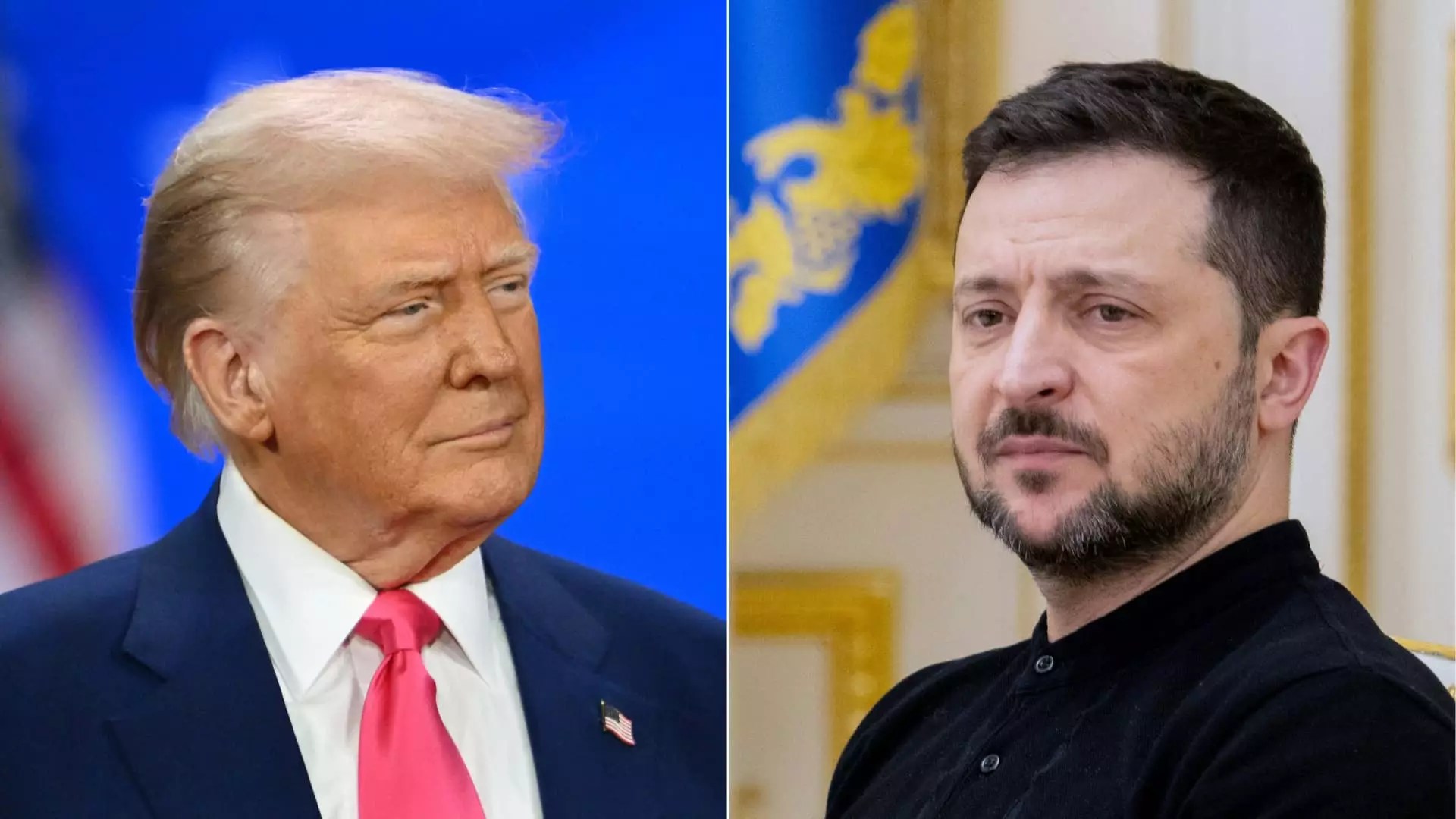The recent statements by former President Donald Trump highlight a troubling tendency to oversimplify a deeply complex geopolitical situation. While Trump claims that Ukrainian President Volodymyr Zelenskyy holds the key to ending the war in Ukraine, this narrative dangerously reduces a multi-faceted conflict to a binary blame game. Historically, conflicts such as this are never the product of a single actor’s decisions but instead emerge from layers of historical grievances, geopolitical ambitions, and unanswered security concerns. To single out Zelenskyy as solely responsible for ending the war ignores these complexities and risks undermining efforts for a balanced and sustainable resolution.
Trump’s assertion that Zelenskyy could “end the war almost immediately if he wants to” reflects a naive view that the conflict’s resolution hinges purely on political will. Such a perspective dismisses the desperate need for a nuanced approach that recognizes legitimate security concerns, sovereignty rights, and strategic interests from all sides involved. It unfairly places an undue burden on Ukraine, a nation fighting for its survival amidst an aggressive invasion, and disregards the broader international implications—namely, Russia’s irregular warfare tactics and geopolitical aims.
The Dangerous Illusion of Swift Endings
The idea that Ukraine can quickly wrap up the war or that it should make drastic territorial concessions is profoundly shortsighted, and frankly, irresponsible. Historical and recent conflicts have demonstrated that peace processes are intricate negotiations that must consider long-term stability and justice. Zelenskyy’s rejection of the proposed retreat from crucial defensive positions is rooted in a realistic appraisal of the battlefield and the need to preserve Ukraine’s sovereignty. To suggest capitulation based on a hastily crafted peace offer disregards the sacrifices made by the Ukrainian people and risks ultimately prolonging the conflict.
Promoting a rapid peace by accepting potentially disastrous concessions—such as ceding eastern territories—smacks of geopolitical naiveté, especially when those concessions undermine Ukraine’s ability to defend itself in the future. Moreover, endorsing these ideas without accountability or regard for Ukrainian consent risks perpetuating a pattern where powerful nations dictate security arrangements at the expense of smaller, victimized states. Such a stance threatens to normalize a form of diplomacy that prioritizes power over legitimacy and sovereignty.
Misguided Calls for Negotiations and Concessions
While diplomacy is essential in resolving conflicts, Trump’s recent advice that Zelenskyy should strike a deal overlooks the core issue: Russia’s stated demands are rooted in broader strategic objectives rather than genuine peace. Moscow’s insistence on addressing “root causes,” including NATO’s expansion, reveals an attempt to impose a geopolitical carve-up of Europe—not a sincere desire for peace. These demands threaten to weaken NATO and European security if accepted, and they dangerously shift the goalposts in negotiations away from Ukraine’s sovereignty toward Moscow’s strategic interests.
It is hypocritical for foreign leaders or former presidents to advocate for concessions that fundamentally undermine the security and independence of Ukraine while ignoring Russia’s ongoing violations of international law. What is often missing from this debate is a recognition that Ukraine’s resistance is not merely a defensive measure but also a stand for the future stability of democratic nations threatened by aggressive authoritarianism. To accept Moscow’s demands wholesale would embolden similar conflicts elsewhere, eroding the international order.
Centrist Realism Versus Flawed Optimism
From a centrist liberal perspective, it is vital to acknowledge the importance of pragmatic diplomacy without sacrificing core principles of sovereignty and justice. The temptation to push for quick fixes under the guise of realism is seductive but perilous. Realism must include a firm stance on the necessity of upholding international law, supporting Ukraine’s right to self-determination, and recognizing that peace without justice only guarantees future instability.
The current geopolitical landscape demands a approach that balances strategic patience, sustained support for Ukraine, and a clear opposition to concessions that threaten European stability. Dismissing Ukraine’s legitimate security concerns or pushing for immediate capitulation under pressure simply plays into Russia’s narrative of the West being unwilling to stand firm. This approach weakens the moral authority of pro-peace efforts and invites dangerous precedents that could redefine the boundaries of national sovereignty.
The core fallacy in narratives like Trump’s is their framing of peace as a quick resolution, ignoring the hard work, patience, and respect for sovereignty needed to craft a durable settlement. War is rarely ended by unilateral decisions or simplistic negotiations; it requires a comprehensive approach that considers security, justice, and the long-term stability of the region. Only then can a truly sustainable peace be envisioned—one that does not merely silence guns temporarily but addresses the root causes that sustain conflict in the first place.

